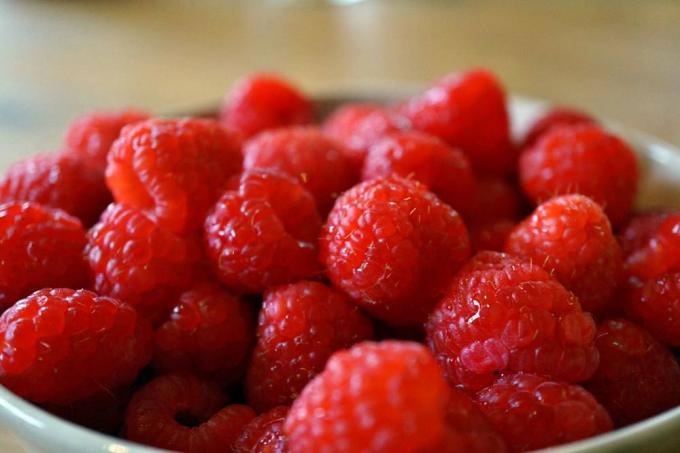
table of contents
- Natural occurrence
- Sun exposure problems
- Prevent fruit damage
- Choice of location depending on the variety
Raspberry plants are not suitable for a location in full sun. Their natural distribution areas, however, provide information about the claims of the Berry bushes. A little shade supports healthy growth and improves your harvest Raspberries.
Natural occurrence
Raspberries are considered to be undemanding plants that spread uncontrollably in the garden due to the lack of pruning measures. They are among the pioneer plants that prefer to grow in forests. The shrubs colonize bare areas and are among the first plants to thrive in newly created forest clearings or on the edges of the forest. Rubus idaeus is widespread in the temperate to boreal climates of Europe. In the Mediterranean zone, the species increasingly disappears the further south it goes. Here their distribution area is limited to the high altitudes in the mountains. This occurrence gives you valuable information about the site conditions, which you should consider when planting raspberries in the garden. Ideal growing locations are:

- West side of a walnut tree that ensures shady conditions until noon
- Dry stone walls that protect against the midday sun
- North wall of a garden shed in the open space
Sun exposure problems
Some gardeners plant their raspberry in full sun. The harvest is only guaranteed if the water balance is not unbalanced during the hot summer months. Such locations are not ideal, because berry bushes suffer from increasing summer heat and prolonged drought in the context of climate change. As a protection against excessive evaporation, the stomata of the leaves are closed so that the metabolism is shut down. The fruits that have already formed are exposed to the sun unprotected. Sunburns on the leaves and fruit damage are the result. When the air temperature rises above 30 degrees, the first signs of degeneration of the raspberries can be seen. If the temperature in the fruit tissue rises above 40 degrees for more than two hours, irreversible damage ensues. Otherwise, if the air temperature is more than 40 degrees, the tissue of the berry fruits slowly turns milky white.
Tip: Raise your bush berries into a bush. Here the delicious fruits hang inside the plant and are better protected from too much sunlight.

Prevent fruit damage
The damage is greatest when the previously shaded berry fruits are suddenly exposed to the blazing sun. Due to a lack of water, the cover collapses through leaves. In the fruit, not only does the tissue temperature rise, but also the respiration rate. This leads to clumping and the death of proteins and enzymes, which lead to tissue breakdown. Climate change and the increasing extreme conditions are also increasingly influencing the choice of location. To prevent fruit damage, you should pay attention to these site conditions:
- Raspberries need high humidity
- attach great importance to cool summer temperatures
- Pay attention to a balanced light ratio
- ideal locations offer sun in the morning and evening
- Sun protection is recommended during lunchtime
Tip: For raspberry plants in sunny places of growth, clearing cuts should only take place after the harvest, so that the fruits are better shaded while they are ripe.

Choice of location depending on the variety
The location in which your raspberries feel particularly comfortable depends on the variety selected. The majority of cultivated forms prefer a partially shaded location. Still, few varieties are robust enough to tolerate a spot in full sun all day. Only the original species can also be planted in the light shade. Although the shrub thrives in poor light conditions, planting in full shade is not recommended. Here the raspberry plant invests more energy in leaf development, so that fewer flowers are formed and the harvest is very poor. These are recommended breeds for different locations:
- Sun: 'Saxa Record'
- Penumbra: 'Aroma Queen', 'Pokusa', 'Black Jewel', 'Golden Queen'
- Shade: wild raspberry
